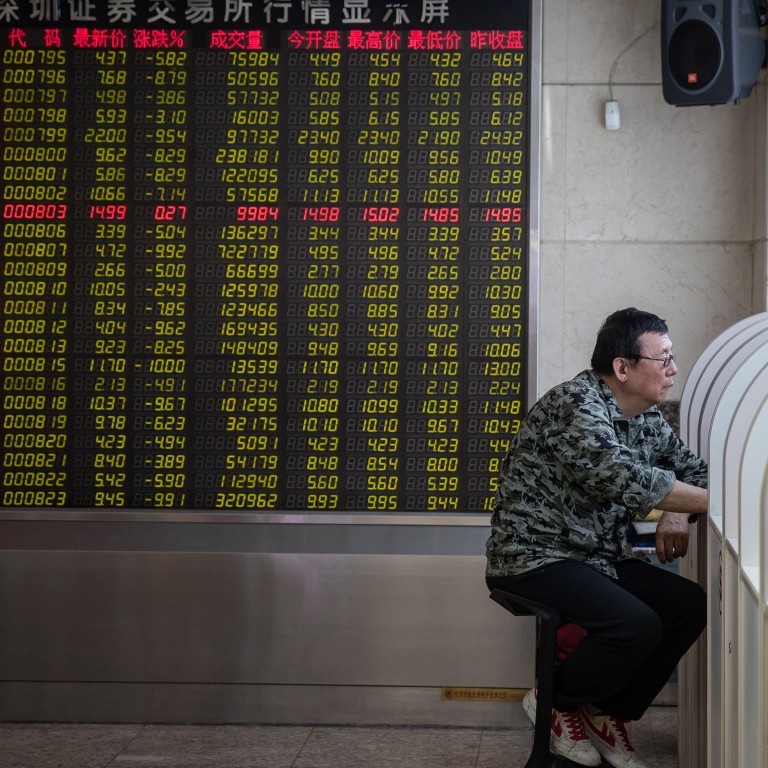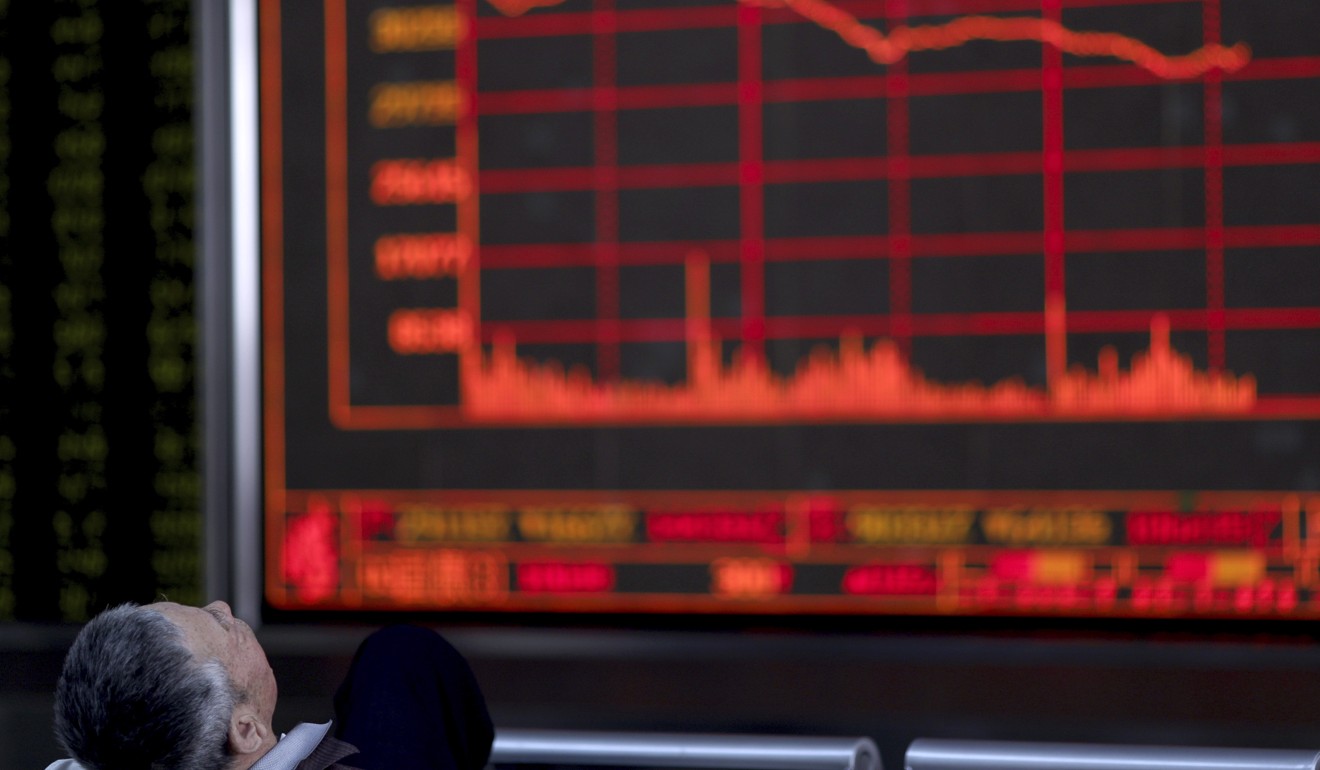
‘Is it fake news?’: China censors Trump’s US$200 billion tariff tweets
- Mainstream and social media silent on US president’s unexpected reaction to trade talks between China and US moving ‘too slowly’
Chinese investors and manufacturers woke up to tumbling stock markets on Monday morning as censorship by Beijing kept mainstream and social media in the dark over US President Donald Trump’s threat of renewed tariffs on Chinese goods.
The markets opened hours after Trump tweeted that the United States would increase tariffs on US$200 billion of goods from 10 to 25 per cent this Friday. The president complained that progress on trade talks with China had been moving “too slowly”.
Despite sharp market reactions, the three major official state media outlets – newspaper People’s Daily, broadcaster CCTV and Xinhua news agency – had by noon made no mention of the developments in Washington or market reaction to them.
Meanwhile, Caixin and Sina news – the biggest finance news outlets in the country – said the markets were “affected by information”, but did not elaborate.
Global Times eventually made mention of Trump’s tweets, but buried it at the end of a stock market story published just after 1pm, and other state media outlets began reporting on the foreign ministry’s reaction at a press briefing by mid-afternoon.
Update: China still ‘preparing’ delegation for US trip despite Donald Trump’s threat to increase tariffs
The trade war between the US and China has ravaged the global economy for almost a year. Before Trump made his announcement on Twitter, Beijing and Washington said they were trying to reach a deal in the trade talks they described as “constructive”.
Huang Jianping, chairman of Dongguan-based ceramic tile exporter Wonderful Group, said: “Is it fake news? Why did I not see anything on Chinese media?”
Huang said that once tariffs were increased to 25 per cent, there would be very little chance for Chinese ceramics exports in the US. He estimated that there would be roughly 10 billion yuan (US$1.5 billion) of losses each year for Chinese ceramics exports, and he feared that other Western countries would follow US policy.

“It will also have an effect on our [trading] forecasts,” Huang said. “They say that confidence is more valuable than gold. All this is not good for the future.”
A Shenzhen-based smart-home producer was stunned by Monday’s developments.
“Was [Trump’s tweet] the reason behind the stock market plunge?” he said. “How come there was no news on this? What were the reasons that have led to the sudden flip [of the trade talks]?”
Hong Kong braces for turbulence as US-China trade war turns ugly with Donald Trump raising tariffs on Chinese exports
WeChat, China’s leading messaging app, was censoring posts about Trump’s tweets on Monday.
In a test by the South China Morning Post, a screenshot of Trump’s tweets posted to a mainland WeChat account could not be seen by contacts. The screenshot was not deleted when published to a WeChat account in Hong Kong.
A news feed on Trump’s announcement sent by Bloomberg’s official Chinese WeChat account on Monday was deleted, replaced by a message that explained the post had “violated WeChat regulations”.

So, for almost half a day after his threats of new tariffs on Chinese goods were made public, Trump’s tweets remained one of the most censored news items in mainland China.
In his latest tweets, Trump said he would also target a further US$325 billion of Chinese goods with 25 per cent tariffs “soon”, meaning virtually all Chinese exports to the US would be targeted.
This is a U-turn from the latest round of trade negotiations between China and the United States that concluded last Wednesday, when US Treasury Secretary Steven Mnuchin described the talks as “productive meetings” and said on Twitter they would continue “next week”.
Additional reporting by He Huifeng



